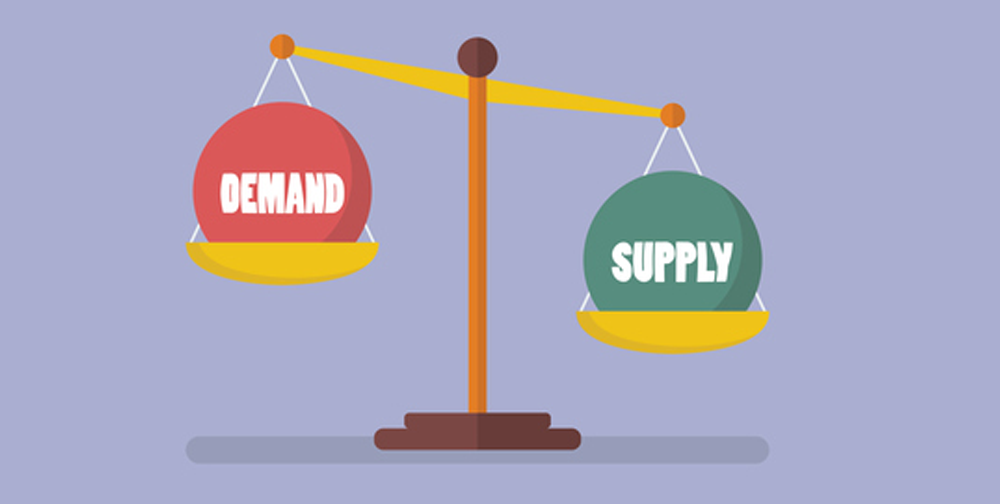
Subscribe to our newsletter!
We don't spam. You will only receive relevant and important tips for you and your business.
Unsubscribe anytime.
By Darren DeYoung
There is value in consistency.
Knowing when a set of standards routinely occur outcomes can be predicted with moderate success.
Being consistent can provide great value. But when it comes to online advertising, consistency can be sought, but rarely is it obtained. Online advertisers scrutinize copy, research keywords, and attempt to create campaigns that, at best, will lead to consistent results.
But, changes occur all the time. External factors play an important role when it comes to online advertising. And this environment makes an advertiser’s world anything but consistent.

Despite the knowledge and expertise that goes into an online campaign, at a moment’s notice, a sudden increase or decrease can occur. This single external factor (or combination of multiple factors) can skyrocket or plummet a campaign to places you have never seen. Causing exorbitant spends, loss of value, and one stumped advertiser longing for a return to consistent results.
With digital ad spending surpassing that from television and no signs of this trend stopping, digital advertising is in a state of flux. As budgets increase, new companies tiptoe into the digital space, and as digital strategies continue to evolve, consistency is hard to find.

The primary reasons for an increase in Cost Per Click (CPC) include heightened competition, changes in ad quality scores, and evolving user behavior. When more advertisers target the same keywords, the competition in ad auctions intensifies, leading to higher bids and increased CPC. Additionally, if your ad's relevance or landing page experience scores decline, search engines may raise your CPC to maintain ad quality. Lastly, shifts in user behavior and trends can affect keyword demand, influencing CPC rates. Monitoring these factors and optimizing your campaigns accordingly can help manage and potentially lower your CPC.
Within Google Ads, the number of advertisers can be found in the Auctions Insights report. This report allows advertisers to track the competition in the same auctions and gain insight into their performance. Although one can control the price of their own bids, it is the competitors that determine how much you pay and where your bid will be positioned. As more competitors are vying for the same keywords, competition is increasing and the CPC will rise. Many times this will be small increases. But on occasion, a substantial increase will occur.
For example, many marketing budgets are timed and budgeted according to month or year. If multiple competitors set their campaigns to begin on January 1st, or if multiple competitors increase their bidding limits because of a change in annual budgets, there will be an influx of competition converging on the same keywords, at the same time. This will cause a rapid increase in the CPC rate and lead to advertisers to wondering--What just happened?
Although the law of supply and demand states that when competition is decreased, pricing will follow suit. Yet, this is not always the case for online advertising. Because Google Ads bidding is determined by Ad Rank which is Maximum Bid x Quality Score -- the highest ranked ad gets the top position. The CPC is then determined by the Ad Rank of the next highest ad divided by that ad’s Quality Score, plus $0.01.

Since we all know that every competitor doesn’t bid the exact same way on every keyword, this is where the large changes can happen. Back to our example, if 30 competitors are bidding on the same keywords at different prices, the position of the ad is determined by the Maximum Bid x Quality Score. Since every competitor likely has a different maximum bid, it is easier to determine the order. But, if the ten highest bidding competitors all exit the auction at the same time, the remaining participants will all move up in Ad Rank. Although bidding will remain the same, the average position of the ad will change as every ad moves upward. For some, their average position will move from 6 to 2 with the exit of competition. What this means is that your ads are now showing, on average, in the second position on the search results pages instead of the sixth. This is great as your ad now has more visibility leading to a higher Impression Share and is being seen more often. But with that increase in position, the more visible location brings with it a more premium location, leading to a more costly CPC.
Competition is frequently changing with companies entering and leaving the advertising space. They are also changing their bidding strategies just as often. But when a large player, or many players for that matter, stop bidding on keywords at the same time--say the start of the month or the start of the year--there will be significant changes for those who remain in that auction.
Since controlling the competition is impossible, small changes should be expected. But when there are large changes in mass exodus or even a single player with significant ad spend leaving an auction, how can you protect your budget from a significant increase?
When setting up your campaign it is always a good practice to enter a maximum CPC bid. This is the highest amount you are willing to pay for a click on your ad. If this is left blank, Google will happily spend your budget according to their ever-changing algorithms. But entering a limit will provide your campaign protection that your ad will not show if the CPC surpasses a set limit.